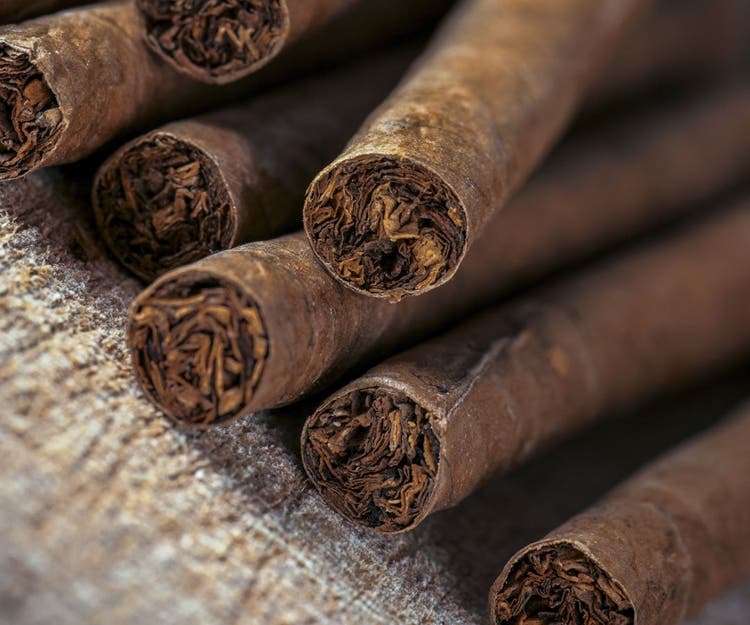
Thoughts About Aging Cigars: Part 2
It is the individual smoker that decides if the changes are good, bad or indifferent. There is no one set answer for every person. And, there are many factors responsible for how any given person will interpret the characteristics of a cigar. The number of a person’s organs of taste and smell, their prior experiences with tastes and aromas, and their ability to perceive and subsequently label these tastes and aromas, will all play a role in determining whether or not they will relish the fruits of a well-aged cigar.
The best way to decide if a cigar is aging beneficially is to smoke many cigars from the same batch over a period of time. In other words, by smoking them AS they age, you can experience, first-hand, the changes taking place during the course of a cigar’s lifespan. I really enjoy sampling the cigars periodically as they age. In that way, I can check their progress and determine whether I need to smoke them quicker because their body and strength is tailing off rapidly, or whether I can relax and smoke them at my leisure because they are aging slowly and gracefully.
It is always a good idea to keep flavor notes on a cigar. Keeping notes can help you to see if the changes that are taking place are to your liking. You can compare your notes about a cigar as you continue to smoke cigars in the same batch over time. (To keep notes on your cigars, download the Stogie Fresh Flavor Tasting Chart.)
Though many handmade premium cigars will age beneficially, if I were to give some general advice about which cigars will benefit most from extended aging, I would say choose cigars that are medium to full in body and/or strength. I have found that these cigars will still exhibit the characteristics that I enjoyed in them when they were young, but with further age will offer nuances and flavors that may have been overshadowed when they were younger. Remember, though all cigars will CHANGE over time, not all cigars will IMPROVE with extended aging.
Time, Money, Patience
Laying cigars down to age takes a major commitment: of time, money, and patience. Time is a concept that is lost on many cigar smokers. Many people buy cigars in samplers of 5-10 cigars so they can smoke one or two here and there over an indefinite time span and typically run out of those cigars before they have significant age.
However, long-term aging may take years and will require much patience. By purchasing cigars by the box, you can pluck one out at various intervals and note the changes that 3 months, 6 months, 12 months, and more, have made on the smoke. This is difficult for many people who don’t have that many cigars and/or don’t have the patience to let their cigars age for more than a few months.
Ideally you should buy cigars by the box for aging. That way you can keep them in their original box and away from the influences of other aromas and flavors of cigars in the same humidor. By buying boxes, you will have enough cigars to enjoy periodically for the long term.
But, purchasing boxes of cigars also has its drawbacks. It requires some serious cash, not only for cigars, but also for storage space. People that want to give their cigars some serious age, must think in terms of large volume humidors. Either large coolers, or cabinet style humidors, or walk-ins. Providing the space for hundreds, if not thousands of cigars can be costly, but is a necessary adjunct to serious collecting and aging.
In summary, it takes a good amount of time, money, and even more patience to stick to a process that will reward you with the benefits of aging cigars. Aging premium cigars can be an educational and fun pastime and it can result in some optimally aged smokes. But, before you embark on a plan of collecting and aging, be sure to consider the potential costs as well as the prospective rewards.
If you missed Part 1 click here.
* * *
David “Doc” Diaz is the publisher of Stogie Fresh and the editor of the Stogie Fresh Cigar Journal. He has served as an educator, researcher and writer and has taught in the Health Education and Health Science field for over 30 years. He possesses an earned doctorate from Nova Southeastern University. This article originally appeared in the Stogie Fresh newsletter of August 1, 2011. Re-posted by permission of Dr. Diaz.